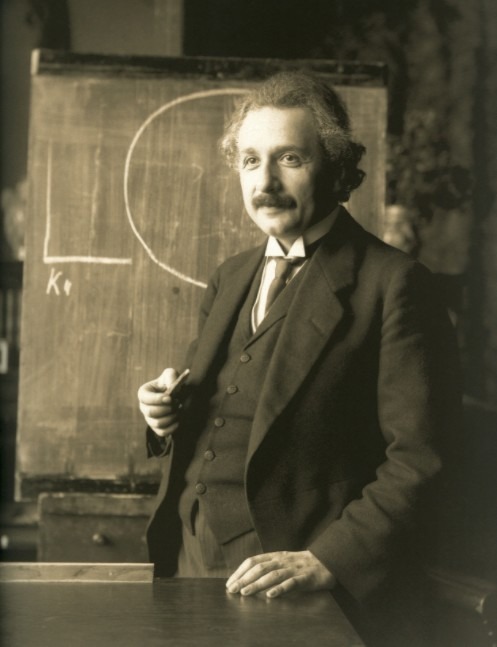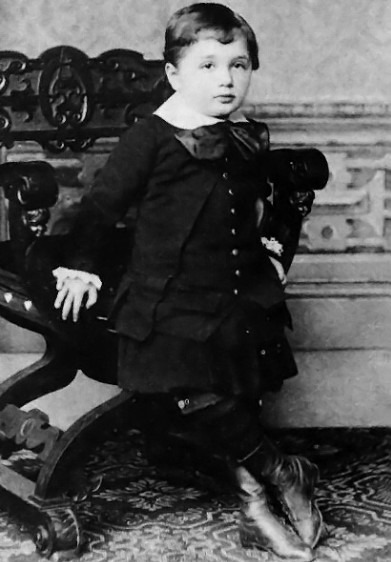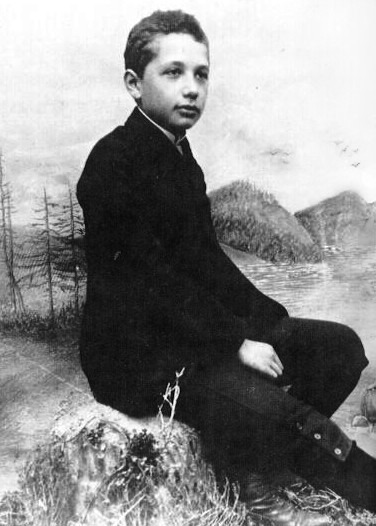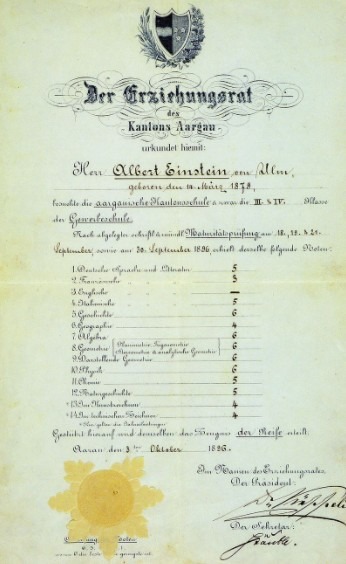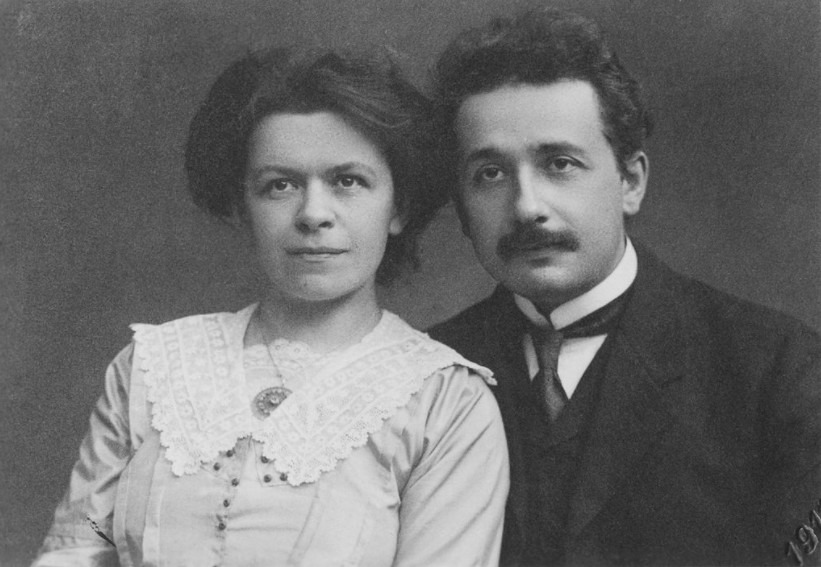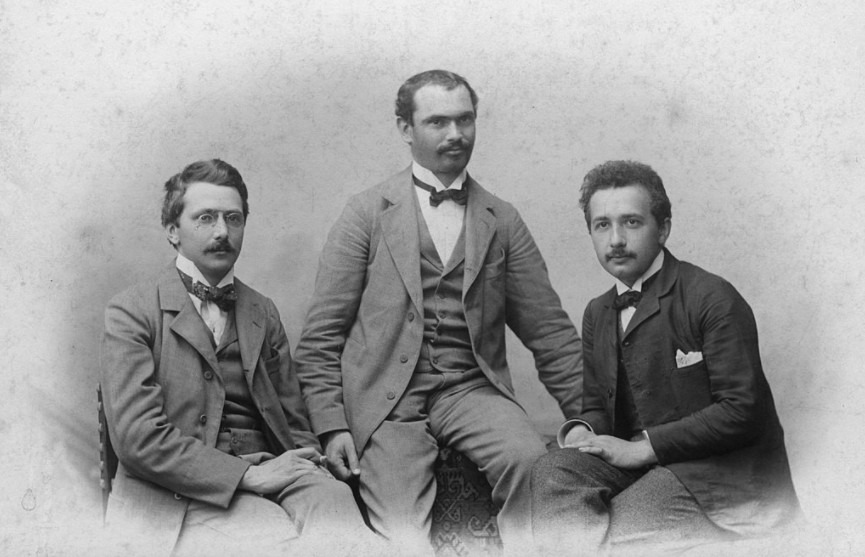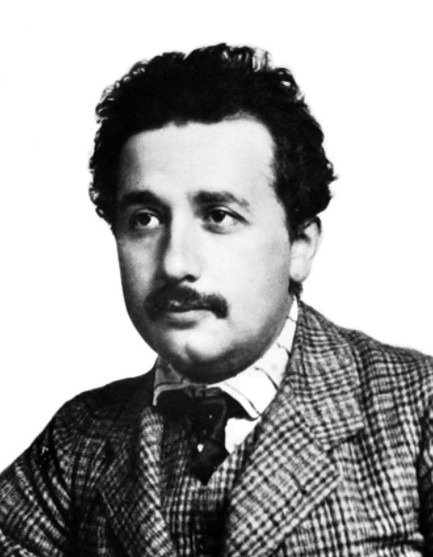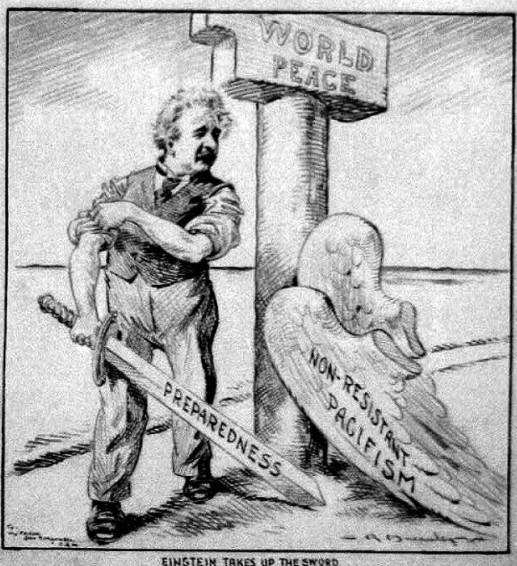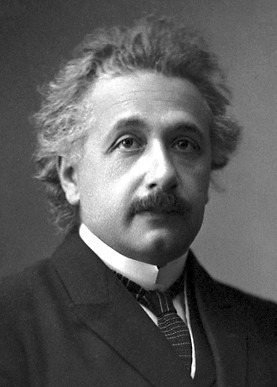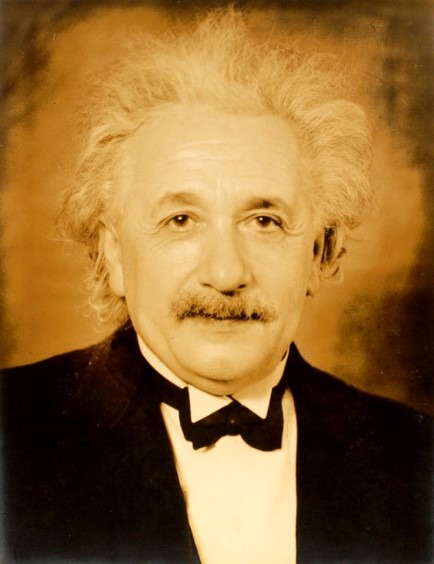Regarded as one of the greatest minds of the 20th century, Albert Einstein’s name needs no formal introduction. Anyone with little knowledge of science knows or has read about his contributions. The name Einstein has become synonymous with being a “genius,” which is fair considering the amount of work he has done in the field of physics.
Einstein’s contributions turned out to be revolutionary in physics and quantum mechanics. His theory of relativity is known as the most famous equation worldwide. This great mind lived a very unusual life, which eventually led him to create the foundation of mass destruction weapons like a nuclear bomb.
Early Life
Albert Einstein was born on 14th March 1879 to a Jewish couple. His father, Hermann Einstein, was a salesman and an engineer who struggled to set up a profitable business. Albert studied at a catholic school in Munich for his primary education. He continued his secondary education in Luitpold Gymnasium. Albert’s father and his uncle had set up a factory that dealt with direct current (DC) equipment. After losing a bid to supply Munich with electricity based on alternating current (AC), the family moved to Italy. Einstein stayed behind to continue his studies at Luitpold Gymnasium.
He had extraordinary skills in mathematics and physics. By the age of 12, he had discovered his own method to prove Pythagoras Theorem. He taught himself algebra and calculus and was always ahead of his fellows. His father wanted him to pursue studies in electrical engineering, but Albert did not conform to the institutions’ rote learning.
Ultimately, he was enrolled in the Swiss Federal Polytechnic Institute in Zurich. Although he had failed biology, chemistry, and French, the institute took him in because of his exceptional mathematics and physics results. He was bound to continue his formal education under the tutelage of Jost Winteler, who would, later on, become his close relative as well. Einstein also found his future wife, Mileva Maric, in the same institute.
His marriage with Mileva Maric was primarily based on his friendship with her. He would study with her, and letters revealed that he enjoyed her company as she was the only female in his class. They got married in 1903. He had three children with her – one daughter and two sons. His daughter died in her infancy, while his son, Hans Albert Einstein, was the only one to survive childhood. He grew up to be a prominent civil engineer.
His other son, Eduard, died of a mental breakdown. Albert Einstein’s love affairs were not limited to his wife. He soon divorced Mileva and married his cousin Elsa Lowenthal. During his marriage to Elsa and after her death, Einstein was romantically involved with several women.
Scientific Career
After graduating in 1900, Albert had trouble finding a suitable job as a teacher. He acquired Swiss citizenship in 1901 but could not be enlisted in the Swiss military due to medical reasons. With Marcel Grossman’s help, Einstein got a job as an assistant examiner in a patent office.
His job’s expertise triggered his curiosity about electric transmissions and the nature of light. He had been fascinated by the wave and particle nature of light since childhood. He would chase beams of light in his mind to understand it better. As a result, Einstein made conclusions about light and the relationship between space and time.
In the year 1905, at the age of 26, Albert Einstein had published four historical papers on the Brownian motion, special relativity, photoelectric effect, and the equivalence of mass and energy. He gained attention in elite academics society after this. Phenomenal physicists like Max Planck praised him and sought out experiments that proved Einstein’s theories.
He was offered to teach positions at prestigious institutes all over Europe. He served as the director of the Kaiser Wilhelm Institute of Physics in Berlin till 1933.
As obsessed as he was with gravitational forces, he saw flaws in his previous theories. He had suspicions that gravitational forces are a by-product of space-time bending. Finally, by November 1915, Einstein published his general theory of relativity. He gave lectures on his accomplishments twice, omitting the mathematical details.
David Hilbert, a notable mathematician, presented the papers for a general theory of relativity as his own. Einstein and Hilbert reconciled later on and remained friends. The equation of relativity is often regarded as Einstein-Hilbert action, but the theoretical work is solely attributed to Einstein. The general theory of relativity also suggested the deflection of measurable light around the sun, which would later prove to be a revolutionary aspect.
World Recognition
Einstein may have laid the foundation for creating the atomic bomb, but he was strictly against the use of nuclear weapons and wars. He was among the only four people who signed against Germany’s participation in World War I. He was massively respected by his students and colleagues as well. In times of dispute after the war, he acted as a mediator between protesting students and faculty.
During the solar eclipse of 29th May 1919, two expeditions were sent out to test the deflection of light around the sun, as proposed by Einstein. The results were announced on 6th November at the Royal Astronomical Society. The news of “warped” space spread like wildfire, and Albert Einstein was hailed as a successor to Isaac Newton.
Invitations came from all around the world to speak and give lectures. He started his travel, and during one such journey, he was told that he had won a Nobel Prize. Although he had won the prize for his contributions to the photoelectric effect, he talked about the theory of relativity during his acceptance speech.
Einstein introduced the new study of cosmology and stated that the universe is dynamic – it expands and contracts. Although this concept was contradictory to the previous knowledge about the universe, astronomer Edwin Hubble proved Einstein’s ideas that the universe is expanding. Einstein collaborated with Hubble and worked on the cosmological constant.
Nazi Threats and Final Years
Owing to Einstein’s immense popularity, the Nazis were particularly at his back. They regarded the relativity phenomena as “Jewish physics.” Einstein knew very well that his life was in danger, so he permanently left Germany in 1932. He settled in New Jersey, America, where he was given American citizenship after a few years.
The thought that his theory of relativity could be used to make atomic bombs bothered Einstein. Still, he convinced the then-president of the US to start creating an atomic bomb. Although the ideas and basis were his, Einstein was never invited to the Manhattan Project that was made to develop the first nuclear bomb. Some say that the US government feared Einstein’s peace-loving nature and his stance about atomic wars. In 1952, Einstein was offered to become the president of Israel, but he declined.
Einstein continued to work further, introducing new ideas like the possibility of time travel, wormhole, and a black hole. He started to feel isolated because physicists were keener to work on quantum theories rather than relativity. He had historical debates with Neil Bohr about such issues. Eventually, Einstein isolated himself and would suffice with walks around Princeton.
On 17th April 1955, Albert Einstein suffered from internal bleeding due to a ruptured aneurysm. Doctors tried to fix him but told them off, telling them that “I have done my share; it is time to go.” He died the following day at the age of 76. Part of his brain was preserved for later studies about the genius that his mind always held.
Albert Einstein – A Revolutionary
Anyone with the tiniest amount of scientific knowledge must have heard or read about Albert Einstein. Although it is hard for everyone to comprehend his contributions, it can be safely said that Einstein’s reputation and fame exceed like no other. His genius mind did wonders to the field of physics that are still proving out to be true.

